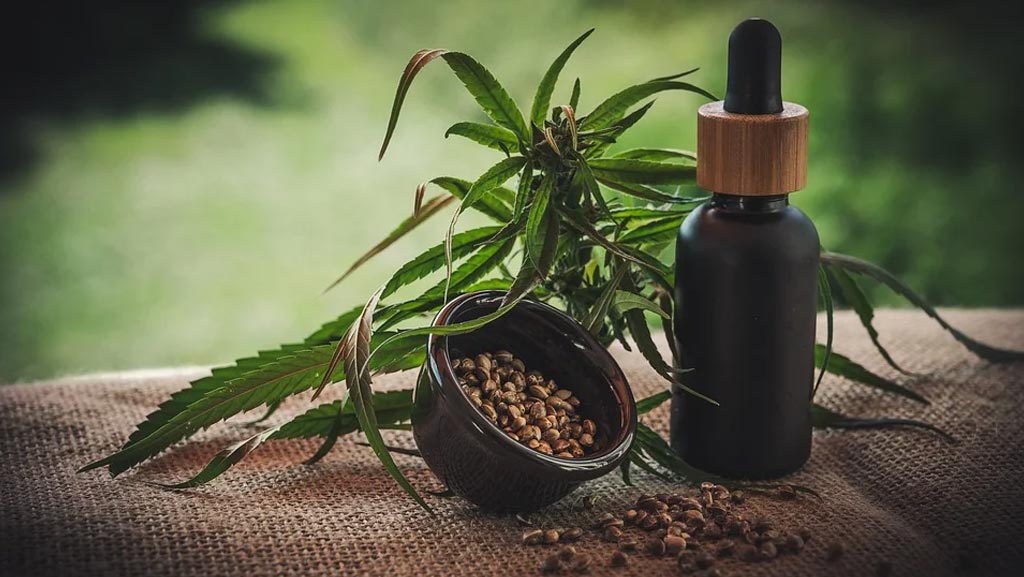How CBD helps skin
How CBD helps skin
Using cannabis for skincare may be a new concept for some people.
Pop culture has painted a picture of the plant as a way to get high, zone out, and not contribute. This is so far from being the case — when did it become a crime to relax? Cannabis sativa is more than that, and a growing body of scientific evidence is supporting the application of topical CBD.
Although it can come from marijuana, CBD differs from THC in that it's non-psychoactive. Government regulation in the U.S. stipulates that it must come from industrial hemp with a THC content of less than 0.3 percent.
Market research has stated CBD skincare was worth $633.6 million in 2018. There are projections that put it at $3,484 million by 2026, with a compounded annual growth rate of 24.8 percent during that forecast period.
The markets have judged CBD products as effective tools for skincare routines, which by extension means that people are voting with their wallet in favor of the products.
CBD is being adopted by the general public at ever-increasing rates, but it begs the question:
Why? Who's using this?Its image is being shifted away from its psychoactive cousin, THC, toward a non-intoxicating, rejuvenating, soothing, natural, therapeutic medication for everyone, not just the stereotypical "counterculture, peace-loving hippies" (not that there's anything wrong with them).
The benefits of CBD for skin are remarkable.
Tina Alster, M.D., clinical professor of dermatology at Georgetown University Medical Center in Washington, DC, spoke with Dermatology Times about its eye-opening characteristics.
“Topical CBD is safe and works effectively for all skin types. The products are easy to administer. Sufferers of serious medical skin conditions and those who are seeking innovative skincare options can benefit from topical CBD use.
“Anti-inflammatory properties associated with CBD are beneficial in treating such dermatologic conditions as acne, psoriasis and eczema due to reduction of dryness, irritation and redness. CBD-containing creams, oils, gels and serums not only moisturize and soothe the skin but are also showing encouraging results in relieving pain caused by certain skin disorders,” Dr. Alster said to Dermatology Times.
According to the previously mentioned market research, market trends show CBD masks are becoming a popular product to reduce redness and inflammation, improving conditions like rosacea, rashes, irritation, and acne.
CBD oil is non-comedogenic, meaning it won't block skin pores and will help with acne. There was a reputable study in 2014 in the Journal of Clinical Investigation that validated whether CBD could help with acne. Particularly, it confirmed that the combination of lipostatic, antiproliferative, and anti-inflammatory effects support the treatment of acne vulgaris.
CBD products are rich in antioxidants, particularly vitamin E, which reduces the negative effects of free radicals on the skin. These free radicals snag an electron from the molecules in the body, damaging the skin's DNA and causing aging that compounds over time.
CBD skincare products will also include essential fatty acids that help the skin. They work to produce the skin's natural oil barrier, ensuring the tissue is hydrated, plump, and youthful.
“The human body has an incredible biological affinity to this plant,” Alexia Inge, the co-founder of Cult Beauty, told the Financial Times. “And when it comes to wellbeing through ingestion or topical application, the use of quality, whole-plant extracted CBD can have hugely beneficial anti-inflammatory, calming, and protective effects on our skin.”
The topical products making this possible are flooding the market as you read this. Research and development teams are building new, innovative ways to take care of your body, and at the center of their cosmetic concoctions is a natural, renewable ingredient: CBD.
Common applications are found in products like lip gloss, body cream, serums, moisturizing sprays, lotions, ointments, lip balm, deodorant, and other topical products.
Of course, they're all topical applications, which have a higher bioavailability than other methods like oral consumption, which carts CBD through the digestive tract, causing reduced uptake of the initial dosage. Bioavailability, by the way, is the rate and extent to which a given chemical will be absorbed and used by the body.
Topical CBD Cream applications are applied directly to the area, cutting out the middlemen, your organs.









